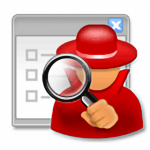 Good Malware Prevention Can Save Your Computer From Periodic Break-Downs
Good Malware Prevention Can Save Your Computer From Periodic Break-Downs
A lack of good malware prevention is probably the most common cause of pre-mature computer failures. If ignored, it can even lead to hardware failure which could easily double your bill for repair.
If you connect your computer to the internet, you need multiple layers of protection, the first and foremost being internet street smarts for the user, and then a few top-tier antivirus, antispyware, antispam, and firewall security programs to catch what your street smarts missed. Rather than just giving you just a list of do’s and don’ts, I will show you several techniques you can use to help avoid getting your computer infected with malware. But if you are already infected, you should perform some malware scans.
Internet Street Smarts
This is where you take personal responsibility for your computer’s health and safety, not to mention your identity in the case of internet fraud. No matter what you might think, if you got infected, there is almost a 100% chance that you either visited a malicious website or clicked on a malicious link. It could have been in an email, a web page, an internet search result, a pop-up and so on. Taking away your mouse might help, but what fun would the internet be without a mouse?
Keeping up to date with the common methods cyber-criminals use to get you to click that malicious link is crucial. In the meantime, there are tools to streamline the identification of malicious links and websites called Link Scanners which I’ll show you how to install and use.
Antivirus Software
When someone’s computer gets infected, their first thought is that they have a virus. The fact is that only about 3% of infections are actually true viruses. Most computers get infected with other forms of malware such as spyware.
Viruses are communicable, meaning they self-replicate and spread by design. If you have a virus, you should disconnect your connection to the internet. Most antivirus programs are very good at detecting true viruses unless they are outdated, expired or have been compromised. Many Antivirus programs also have some AntiSpyware capability.
While most Antivirus software runs in the background actively protecting your computer, you shouldn’t treat it as set-and-forget software. You need to be more pro-actively involved that that, which I can show you how to do.
Download and Install Antivirus Software
AntiSpyware Software
AntiSpyware software takes over where Antivirus leaves off. While the term “spyware” covers a specific type of malware, spyware is usually spoken of as all the other forms of malware that isn’t a virus. Antispyware software is very common, but they don’t all provide “active” protection. Some versions are just passive scanners and can’t prevent infections, they can only detect and remove spyware that has already found its way on your computer.
If you aren’t sure whether you have active or passive protection, the active versions are usually “paid” products. Hopefully you can remember if you paid for it or not. If so, you need to know if you bought a lifetime product license or one that needs to be renewed annually like most antivirus software.
Download and Install AntiSpyware Software
AntiSpam Software
Anybody who uses email is aware of what spam is by now, but unless you use an email program that is installed on your computer’s hard drive (as opposed to webmail which is on your webmail’s company server), their aren’t many antispam solutions for filtering out spam mail. If you use webmail such as gmail or yahoo, etc., you pretty much have to rely on their built-in spam filtering.
Depending on which email program you might have installed on your computer, there are a variety of AntiSpam programs available. Aside from using AntiSpam software, there are techniques I can teach you to reduce the amount of spam you might be unknowingly inviting into your inbox.
Firewall Software
When it comes to what Firewalls can and can’t protect you from, firewalls are very misunderstood. A firewall is software or hardware that checks information passing to and from the Internet or your network, and then either blocks it or allows it to pass through to or from your computer, depending on your firewall settings. Although the Windows Firewall has become more robust which each new version of Windows, it is turned on by default, so in most cases, there isn’t much, if anything to set up.
Once enabled, the Windows Firewall can help prevent hackers or malicious software (such as worms) from gaining access to your computer through a network or the Internet.
– See more at: http://computeraftercare.com/module-8/check-windows-firewall-settings/#sthash.6nRpCH7a.dpuf
Once enabled, the Windows Firewall can help prevent hackers or malicious software (such as worms) from gaining access to your computer through a network or the Internet.
– See more at: http://computeraftercare.com/module-8/check-windows-firewall-settings/#sthash.6nRpCH7a.dpuf

Leave A Reply (No comments so far)
No comments yet